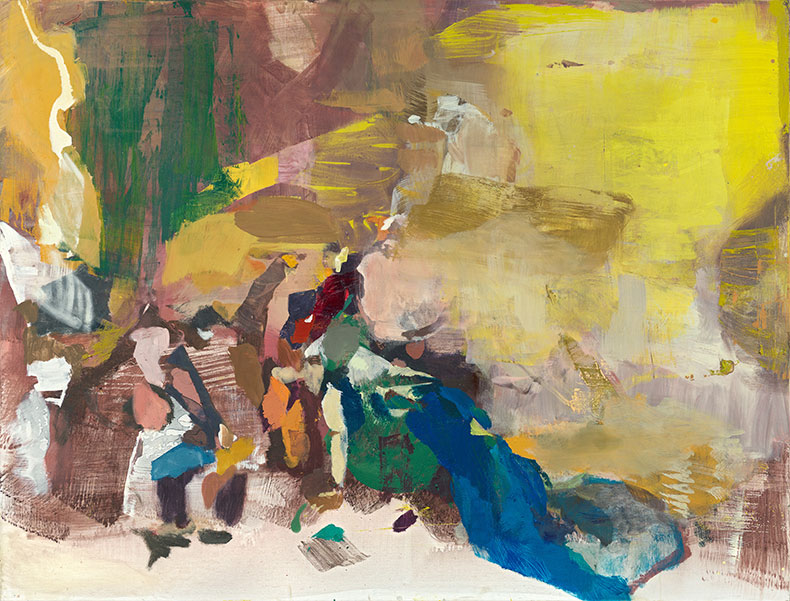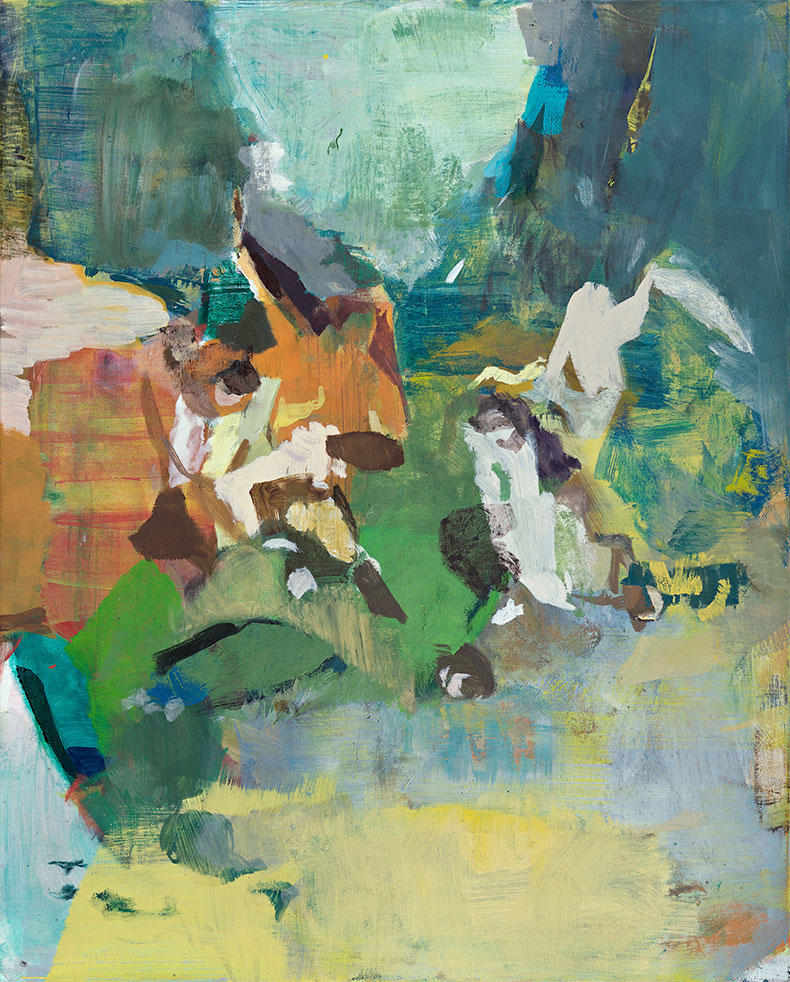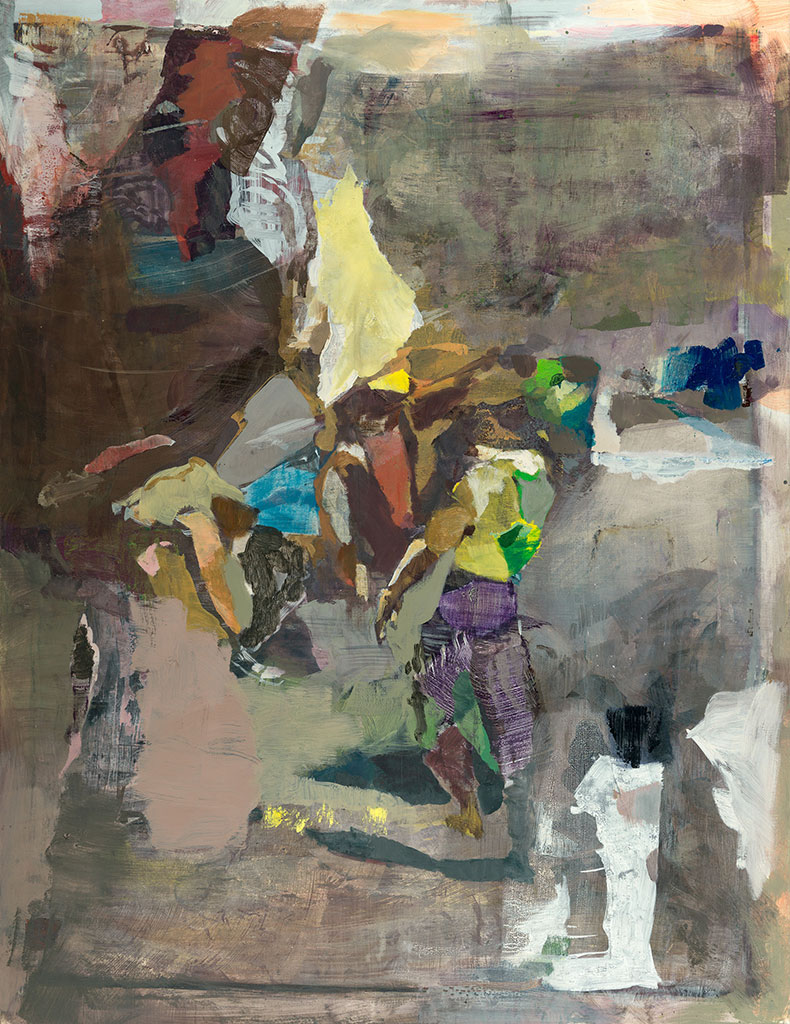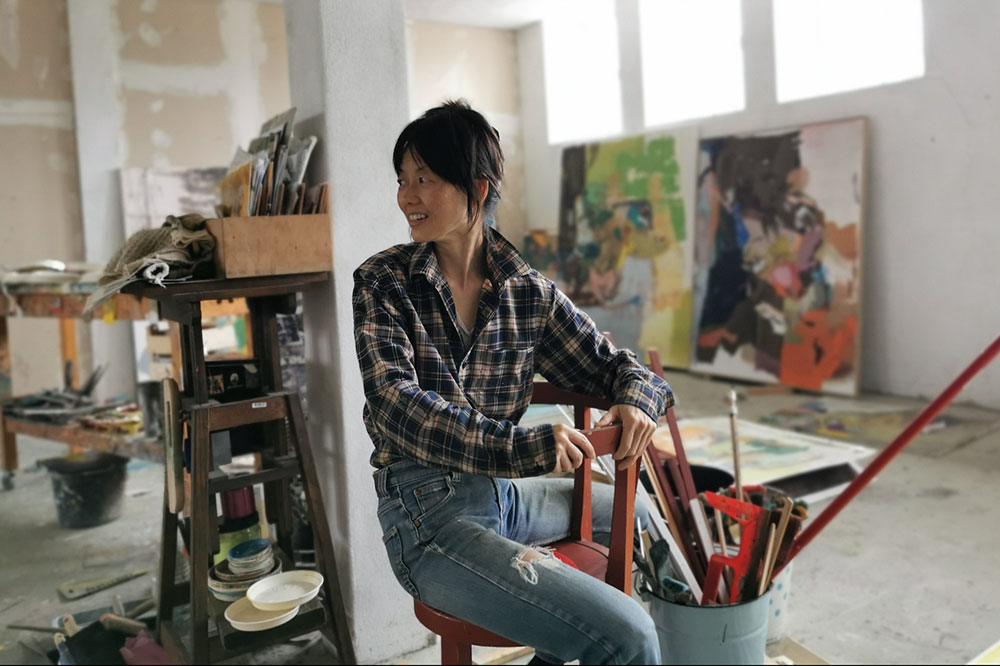The Osaka-born, Berlin-based artist Maki Na Kamura describes herself as ‘both a traditionalist and as a painter of the twenty-first century’. Blurring the boundaries between abstraction and figuration, her work draws on a diverse range of references from the compositions of Renaissance painters such as Luca Signorelli to the choreographed dance moves of K-pop stars such as ATEEZ. Her solo exhibition of new paintings is at Michael Werner Gallery in London from 21 April–17 June.
Where is your studio?
At a place where the fox and the rabbit say hello to each other (a German idiom). More accurately, it is in an area which was part of the former GDR (German Democratic Republic); here, illusion and dilemma say hello to each other.
How would you describe the atmosphere of your studio?
It is big, but not big enough. It could also be tiny and I still would fit in it.

Do you work alone?
With friends. They often come from the past. Dürer is my regular guest, for example.
Is there anything that frustrates you about your studio?
I purposely picked the countryside for my studio.

Do you listen to anything while you work?
The loud chirping of birds – louder now with the noise of planes leaving with the east wind from Berlin airport.
What’s the strangest object in your studio?
The clock which I never wind up.

What’s the most well-thumbed book in your studio?
Right now: Henri Michaux’s Zeichen. Köpfe. Gesten published by Piet Meyer Verlag,which unfortunately closed a few years ago.
Who is the most interesting visitor you’ve ever had to the studio?
Titi, who had no tail and three legs.
‘Maki Na Kamura’ is at Michael Werner Gallery in London from 21 April to 17 June.



